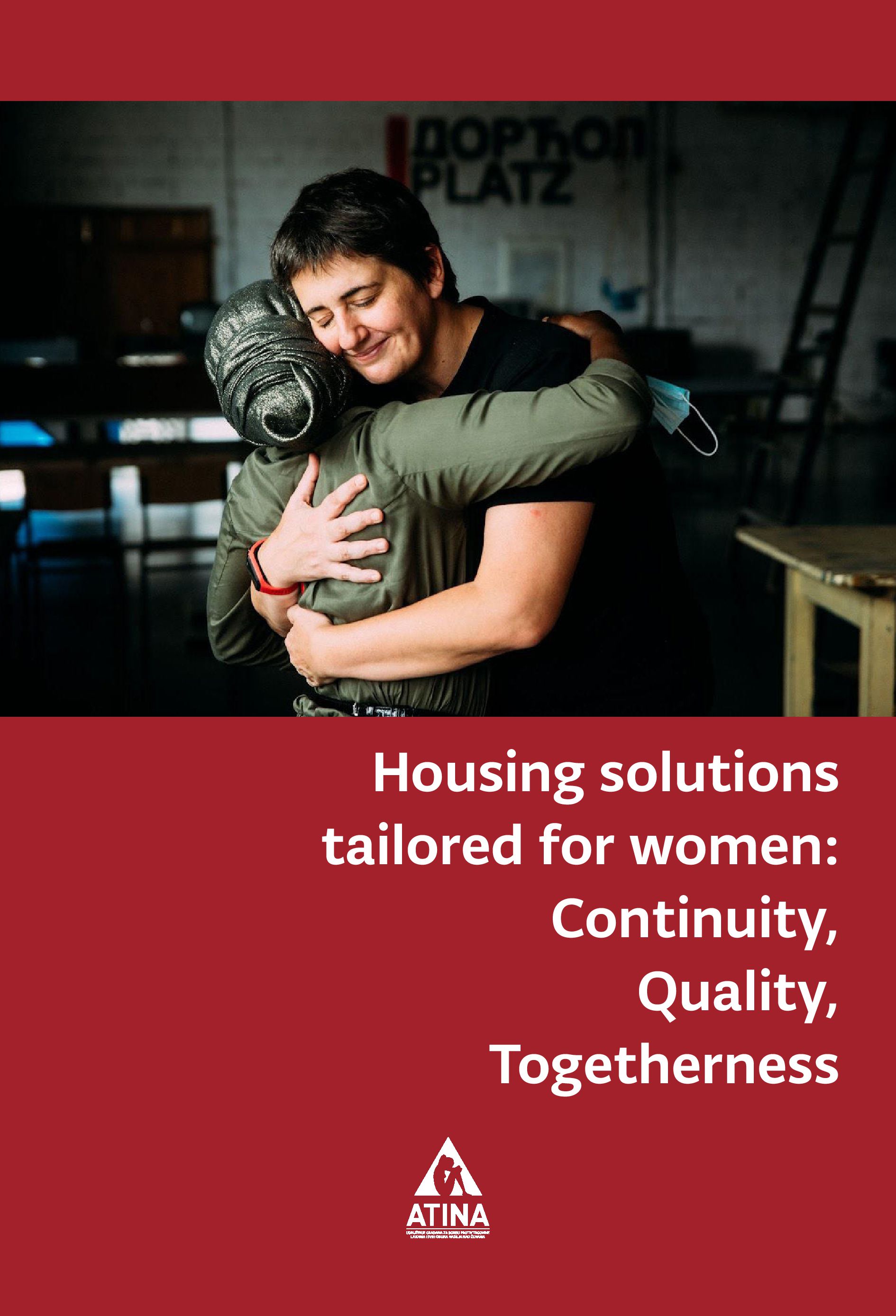Hotline: +381 61 63 84 071
Housing solutions tailored for women: Continuity, Quality, Togetherness

Housing solutions tailored for women: Continuity, Quality, Togetherness
A Six-Year Evaluation Report on the Assisted Housing Service for Victims of Human Trafficking run by NGO Atina
“At Atina, I realized I wasn’t alone. Other girls have gone through the same things as me. I feel supported, like someone cares, someone asks me what I like and want. I’m discovering myself here.”
Stanislava, an 18-year-old victim of human trafficking
The evaluation of the “assisted housing” service implemented by NGO Atina from 2018 to 2024 confirms that this program is essential to the recovery and long-term social inclusion of women and girls who have survived human trafficking. Over six years, the service supported 61 beneficiaries—including Serbian nationals, migrants, refugees, and asylum seekers—with 78 individual admissions. The program provided access to safe accommodation, health and psychological support, education, employment opportunities, and other areas critical to independent living.
The service was officially licensed in 2018, formally recognizing its quality within the social protection system. However, this recognition did not come with state financial support. The service has been funded exclusively by international donors throughout the entire period. It has remained the only specialized and accessible option for trafficking survivors during times when the state shelter was temporarily closed, with Atina taking full responsibility to ensure uninterrupted support.
The foundation of the service is an individualized, trauma-informed approach that respects the needs of each woman and involves them in every phase of planning their support. The planning process spans 12 key areas of integration: legal status, education, employment, healthcare, safety, family and partner relationships, and self-perception. Daily psychological support — consistently highlighted by users as a turning point in their recovery — holds particular significance.
According to the women who have used this service, its core strengths lie in the sense of safety it offers, the commitment and availability of its staff, and the genuine inclusion of beneficiaries’ voices in decision-making. It has allowed them to stabilize their health, meet basic needs, acquire new skills, and envision a future. Many have said that, for the first time, they felt respected and truly seen — and that the living conditions were “beyond anything they had ever expected.” Some describe it as the only real home they’ve ever known.
In 2024, following years of implementation, Atina secured, thanks to the EU fund, its property to host the service, resolving the issue of physical space and further strengthening the organization’s capacity. Despite the absence of institutional state support, the service has been carried out in full compliance with legal standards and guided by principles of trauma-informed care and gender sensitivity.
Based on the evaluation results and the lived experiences of its beneficiaries, it is clear that the assisted housing service is irreplaceable within the system of protection for trafficking survivors. However, its long-term sustainability remains an urgent question that relevant institutions must recognize and address. Without stable and predictable funding, this and similar services face a serious risk, despite their proven value and vital role.
Click here to view the complete publication (PDF):












 FACEBOOK
FACEBOOK TWITTER
TWITTER YOUTUBE
YOUTUBE